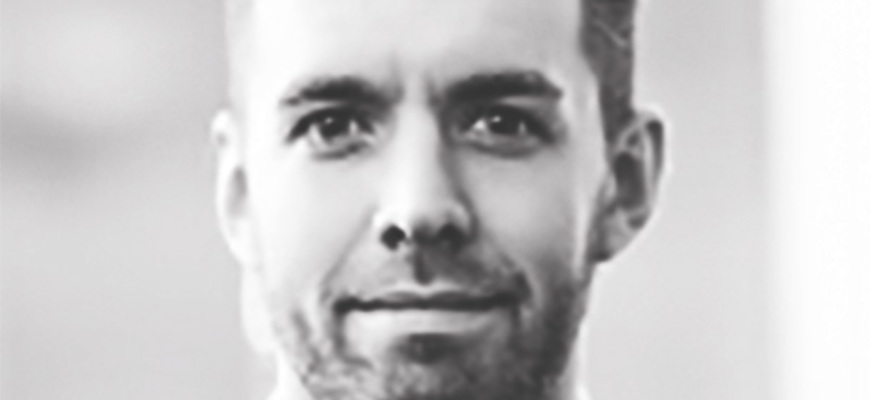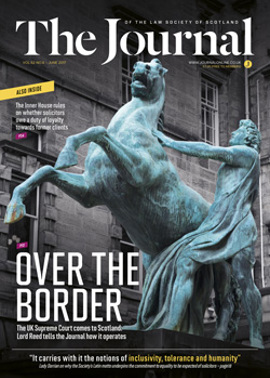Without prejudice

Scotland has a lot to be proud of: our politics, our scientific innovations, our legal history. We contribute significantly to the world in more ways than whisky.
One significant way is our leadership in progressive inclusion. It sounds like a “thing”, as if it were something we had worked hard to get. Without ignoring the decades of rights activists’ hard work and sacrifices, equality is quite a natural state of being for Scots. From the phrase “We’re a’ Jock Tamson’s bairns” to the Scotland Act 1998, equality is intrinsically woven into our country’s fabric.
Our forward thinking isn’t a state secret: Scotland is internationally ranked as one of the most progressive countries for LGBT+ equality, only swapping its gold medal for silver as Europe’s most inclusive country for LGBT+ people in 2017. Our high profile reputation as a leader of diversity is undoubtedly linked to our Scottish Parliament, which has the most openly LGBT+ political composition in the world.
From penicillin to progressive equality, Scotland has a good streak.
You know what we’re not good at? Being proud and telling people how good we are. Being silently stoic isn’t good for us as a society. We sit on these achievements, refusing the accolades for the credit we earned.
This misplaced modesty can be a bigger disadvantage than nought as we risk becoming apathetic to our accomplishments and allow for such achievements to disintegrate. Intolerance is quick to rise in silence. Since summer 2016, hate crime is at a record high with homophobic attacks having risen by 147% across the UK.
In the tense political climate we live in, never has visibility been more powerful or more needed.
Visibility is the root of The Glass Network’s Principles Campaign.
The invisibility dilemma
There is a need to clarify why in 2017 we still need a LGBT+ group, such as The Glass Network.
All minority groups share a common trait known as “minority stress”, which in essence encapsulates that being a member of a marginalised group requires extra effort. With reference to Michael Hobbes’s Highline article The Epidemic of Gay Loneliness, if you’re the only Asian colleague in your chambers, or the only woman at your firm’s table, you need to think on a level that members of the majority don’t, on top of constantly meeting the expected standards of work required. Daily interactions have a double-take: if you lose a client or case, are you falling into the stereotypes of your ethnicity? If you stand up to your superior, or if you fail to, will your colleagues think it’s connected somehow to your gender? Over time, the consideration of these possibilities takes its toll on people, even without experiencing direct stigma or prejudice.
For LGBT+ people, the fact that our minority status is hidden only magnifies the effect of minority stress. These extra considerations and work have been going on since early puberty. Dealing with internal questions and conflicts is difficult in itself, and LGBT+ have had to do it without the ability to speak to peers or family. Converting LGBT+ invisibility into visibility is stressful; you want to avoid becoming “that gay guy”, while being a proud representative of your community, while all the time fitting into your workplace, while all the time being proudly visibly so other LGBT+ can find you and closeted people can see that a person can be happy while continuing to perform your job and silently balance these considerations.
Somewhat ironically, being a part of a minority means you are always going to represent more than just yourself.
LGBT+ networks exist because they can be the few places where a person doesn’t have to consider themselves a representative. People can be themselves without having to identify as LGBT+.
That being said, The Glass Network, Scotland’s first network specifically for LGBT+ legal professionals, is by no means a secret group. First and foremost, Glass is a community of legal professionals: we collaborate with firms and legal organisations to support the visible promotion of equality in the Scottish legal sector. As Women in Law Scotland and Scottish Ethnic Minority Lawyers Association lead the way for gender and ethnic equality respectively, Glass focuses on LGBT+ equality.
The point of these groups is to allow everyone to be better at our jobs. We don’t want to waste time wondering whether we misrepresented an entire community by forgetting to staple the handouts for the seminar. We want to focus on delivering high quality work and value to our workplaces and the legal community at large.
Enter, The Principles Campaign.
These are my principles
Professional integrity is an indivisible component of our profession, and, as previously stated, visible integrity is powerful. To that end, The Principles Campaign – #TheseAreOurPrinciples revolves around the principles that form our legal profession.
The campaign’s structure is simple: legal figureheads representing Scotland’s vast legal diversity – ranging from Hector MacQueen to the First Minister, Registers of Scotland to RBS Legal – speak directly to the viewer. First, these figureheads summarise a definitive principle of Scots law (for example, Donoghue v Stevenson, the Moorov doctrine, Stair’s golden rule). Then, our figureheads make a statement about LGBT+ equality and how its promotion benefits our firms, financially and holistically. Finally, they address the viewer: “These are our principles. What are yours?”
The overall message of #TheseAreOurPrinciples is that these principles of law and principles of equality must be applied so to meet and develop the standards and expectations of our profession.
As noted, Scotland isn’t good at being loud and proud about our accomplishments, but we have plenty of accomplishments to be proud of. Along with fellow committee member Chris Rennie (DLA Piper), The Glass Network coordinated this campaign by reaching out to the Law Society of Scotland, which helped us reach out to each figurehead. Every person we asked said “yes”. Nobody disagrees with equality, it is our norm, and that in itself is an accomplishment.
The next step to this is making this visible and vocal. Visible support for LGBT+ equality relieves the burden of LGBT+ people from being the spokesperson of all things diversity. The spectrum of legal figureheads and representatives in #TheseAreOurPrinciples promotes a truth: Scotland is for everyone. We’re not apathetic; we care.
For legal professionals in Scotland, we base ourselves in meritocracy and equality. Neither is a tricky concept for us to wrap our heads around. I might even go as far to say that both these things are fashionable – nobody was ever impressed by somebody who had it easy.
Turning the invisible visible takes effort, and having people in senior positions at the forefront of #TheseAreOurPrinciples helps us all to focus on our work, assists in conversations about equality, and leads the way for people to follow in promoting equality in their firms and workplaces.
As a final personal reflection, I always identify as a lawyer, albeit a trainee lawyer, before I identify as gay. Being gay is an extraordinary experience I was lucky to be born into, but becoming a lawyer is something I chose myself and defines me a lot more. My goal, similar to the thousands of LGBT+ and straight/cisgender legal professionals in Scotland, is to develop my skills and do the best job I can. Then do it better.
These are my principles. What are yours?
In this issue
- Neutrality policies in commercial companies
- Court IT: the young lawyers' view
- Human rights: answering to the UN
- Galo and fair trial: which way for Scotland?
- Secondary victims in clinical negligence
- Reading for pleasure
- Opinion: Alan W Robertson
- Book reviews
- Profile
- President's column
- Twin tracks to completion
- People on the move
- Court of the nations
- Second time around
- How to avoid a summer tax scorcher
- Humani nihil alienum: a call to equality
- Sheriff commercial procedure: count 10
- Taking a pay cut: fair to refuse?
- Fine to park here?
- Enter the Bowen reforms
- Home grown
- Limited partnerships: a new breed
- Salvesen fallout: the latest round
- Gambling in football – the Scottish perspective
- Scottish Solicitors' Discipline Tribunal
- Changing sides
- Business drivers
- CCBE comes to Edinburgh
- "Find a solicitor" gets an upgrade
- Law reform roundup
- Thoughts on a frenetic year
- Check those bank instructions
- Fraud alert – ongoing bank frauds identified
- AML: sizing up the risk
- Master Policy Renewal: what you need to know
- Without prejudice
- What's the measure of a ruler?
- Ask Ash






